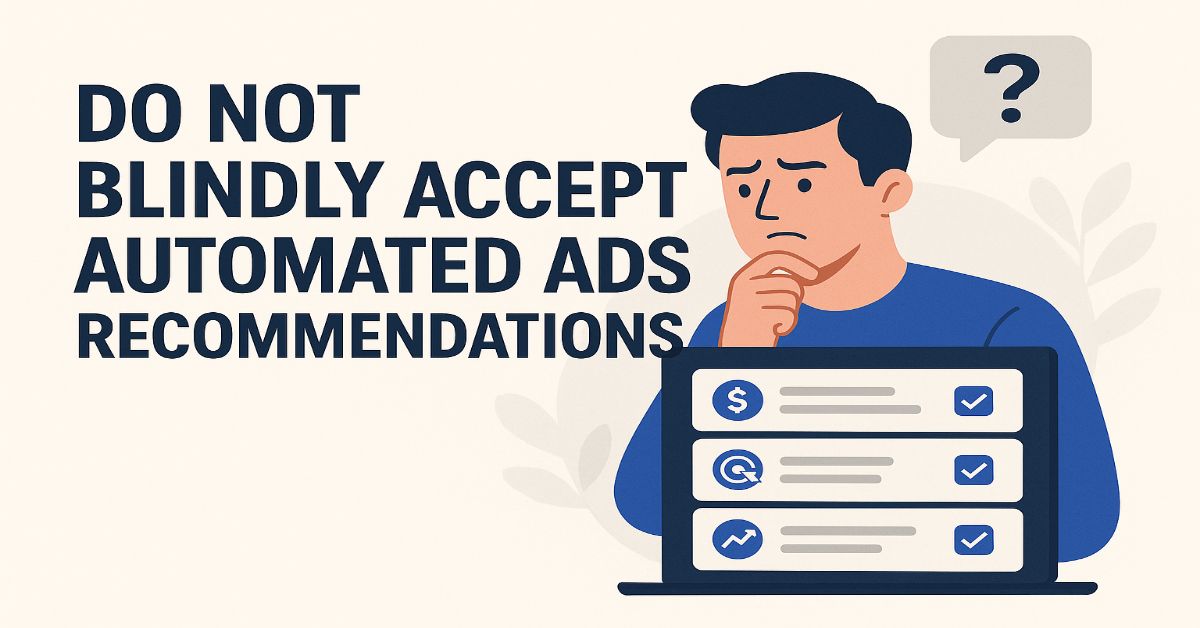02Sep
Do not blindly accept automated ads recommendations
Bradley Rose
|
02 Sep, 2025
|
Return|

When managing campaigns across platforms like Google Ads, Meta, or LinkedIn, you’ll often see recommendations appear in your dashboard. These can range from suggestions to increase budget, broaden targeting, or apply automated bidding strategies. While they might look helpful, it is important not to treat them as instructions that must be followed.
Why caution is needed
Automated recommendations are generated by the platform’s own algorithms, and their primary goal is to encourage more activity within that platform. More activity often means higher spend, but not necessarily better results for you. For example, broadening targeting may increase impressions but reduce the quality of leads, while raising budgets without refining strategy could lead to wasted spend.
The risk of blindly accepting
- Unnecessary Costs – Following every recommendation could push your spend up without a proportional increase in returns.
- Weaker Targeting – Changes designed to reach a wider audience may actually reduce relevance.
- Loss of Control – Automation is powerful, but you still need to keep sight of business objectives and campaign goals.
Getting the balance right
That is not to say recommendations should be ignored entirely. Some can genuinely improve performance, but they should always be reviewed in the context of your objectives. Each change needs to be weighed carefully:
- Does it align with your campaign goals?
- Will it improve the quality of your leads?
- Could it have unintended side effects?
How to review recommendations effectively
Rather than ignoring recommendations completely, use them as prompts to review your campaigns. A few simple checks can help you decide whether to accept, test, or reject them:
- Check alignment – Does the suggestion support your campaign goals?
- Look at data – Compare the recommendation with past performance before making changes.
- Test first – Trial adjustments on a limited budget or single campaign before rolling out widely.
- Monitor impact – Track results closely for at least a week after applying changes.
The Value of Specialist Support
If you’re unsure which recommendations to act on, it can be worth speaking to a specialist. A marketing agency can review the structure of your campaigns, understand how each suggestion fits within your wider strategy, and advise whether it’s worth implementing. The right advice can make the difference between a campaign that drains budget and one that delivers meaningful results.
At BBI Brandboost we generate traffic, leads, and sales with expertly managed PPC campaigns. Contact us now to gain the help you need with you PPC marketing.
About the Author
As well as managing the SEO programmes for BBI Brandboost clients, Bradley is also one of our talented team of copywriters. These complementary capabilities ensure that online content enriched for SEO also engages target audiences and offers the highest quality UX. As our dedicated SEO specialist, he is an expert at research, analysis and implementation of the programmes we implement to enhance online visibility for our client brands.
Find out more about Bradley...